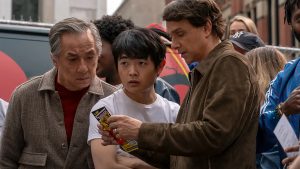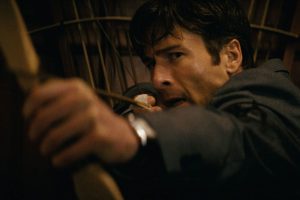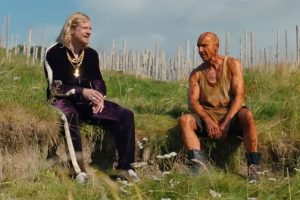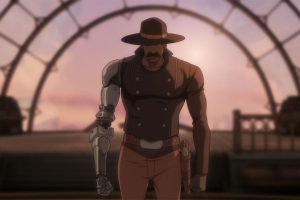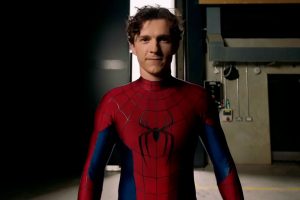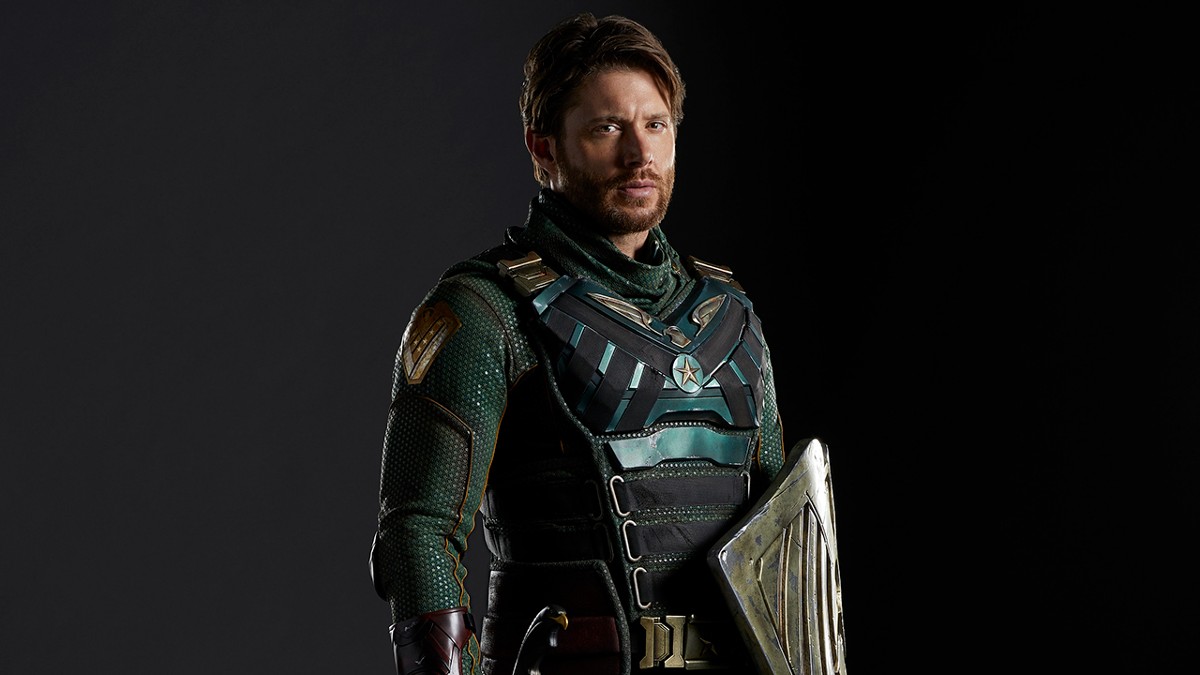
Unless your political persuasion got in the way, you probably didn’t need much help understanding the fascist undertones of the Seven, the premier superhero team in the Amazon series The Boys. After all, the Seven’s leader Homelander (Antony Starr) is a blond-haired, blue-eyed Superman stand-in who wears a cape made out of the American flag, and regularly attends evangelical meetings where he compares his will to the will of God.
Amazon will further expound on the fascist roots of the superheroes in The Boys: Vought Rising. As announced at San Diego Comic-Con, The Boys: Vought Rising will go back to the first days of the global mega-corporation Vought International. According to a statement from The Boys‘ showrunner Eric Kripke and Vought Rising showrunner Paul Grellong (via Variety), the series will be “a twisted murder mystery about the origins of Vought in the 1950s, the early exploits of Soldier Boy, and the diabolical maneuvers of a supe known to fans as Stormfront, who was then going by the name Clara Vought.”
Fans will recognize two of those names as key guest stars from the second and third seasons of The Boys. Portrayed by Aya Cash, Stormfront joined the Seven with not just super-strength and the ability to shoot lightning from her fingertips, but also social media savviness. Stormfront won legions of fans with her truth-telling videos and pseudo-feminist rhetoric, even as it included several racist dogwhistles. Eventually, the second season of The Boys revealed Stormfront as an actual member of the Nazi Party during World War II. She was kept young by the Compound V, which gave her those superpowers. Moreover, Stormfront was the wife of Frederick Vought, the Nazi scientist who developed Compound V and founded Vought International.
Cash will return for Vought Rising, as will Jensen Ackles, who debuted as Soldier Boy in The Boys‘ third season. With his military get-up and omnipresent shield, Soldier Boy was clearly modeled on Captain America, right down to Billy Butcher (Karl Urban) and the Boys releasing him from a decades’ long cryo-sleep. But unlike the upright Steve Rogers (well, at least the non-Ultimate Universe Steve Rogers), Soldier Boy is a cruel jingoist, even with his predilection for weed and unusual sexual interests. Moreover, Soldier Boy willingly participated in the imperialist projects of Vought International, as planned by future CEO Stan Edgar (Giancarlo Esposito).
Much of the backstory of Stormfront and Soldier Boy happens in occasional flashbacks or expository dialogue, which leaves a lot of room for expansion. Furthermore, Vought Rising won’t have much from the comics to go on.
The Soldier Boy of the comics was also based on Captain America, but writer Garth Ennis and artist Darick Robertson portrayed him as an easily defeated failure. The first comic book Soldier Boy, who was the leader of the World War II team Avenging Squad, died when he made an obvious tactical error. The third Soldier Boy is depicted as a bully and weakling who accepts Homelander’s sexual abuse in hopes of graduating from Payback (a variation of the Avengers) to the Seven.
The television show collapses the three Soldier Boys into one character. And while the series does a variation of the first Soldier Boy’s disastrous military operation, he survived and only grew more self-confident. Moreover, the TV version of Soldier Boy is Homelander’s biological father and his equal in terms of strength. Season 3’s climactic clash between Homelander and Soldier Boy showed that the former could indeed be defeated.
The television series changed Stormfront from the comics even more than they did Soldier Boy. The Stormfront of the comics is based on Captain Marvel, a child who was injected with Compound V in Nazi Germany. Like the television version, the comics Stormfront was rehabilitated into an American superhero in modern day. But she only had a handful of appearances, getting killed fairly easily by the Female. More importantly, the comics do little with Soldier Boy, Stormfront, or Vought’s Nazi connections other than make crude jokes and obvious statements about superheroes and fascism. The show has used these ideas to make some of the best satire of the Trump era, even if some viewers totally missed the joke.
Hopefully, The Boys: Vought Rising and its depiction of the supes’ transition from Nazi Germany to America will make the satire even more clear and powerful. At the very least, it will probably depict the first Herogasm from 1952, if that’s your sort of thing.
The post The Boys Spinoff Will Explore the Dark Fascist Origins of the Supes appeared first on Den of Geek.


